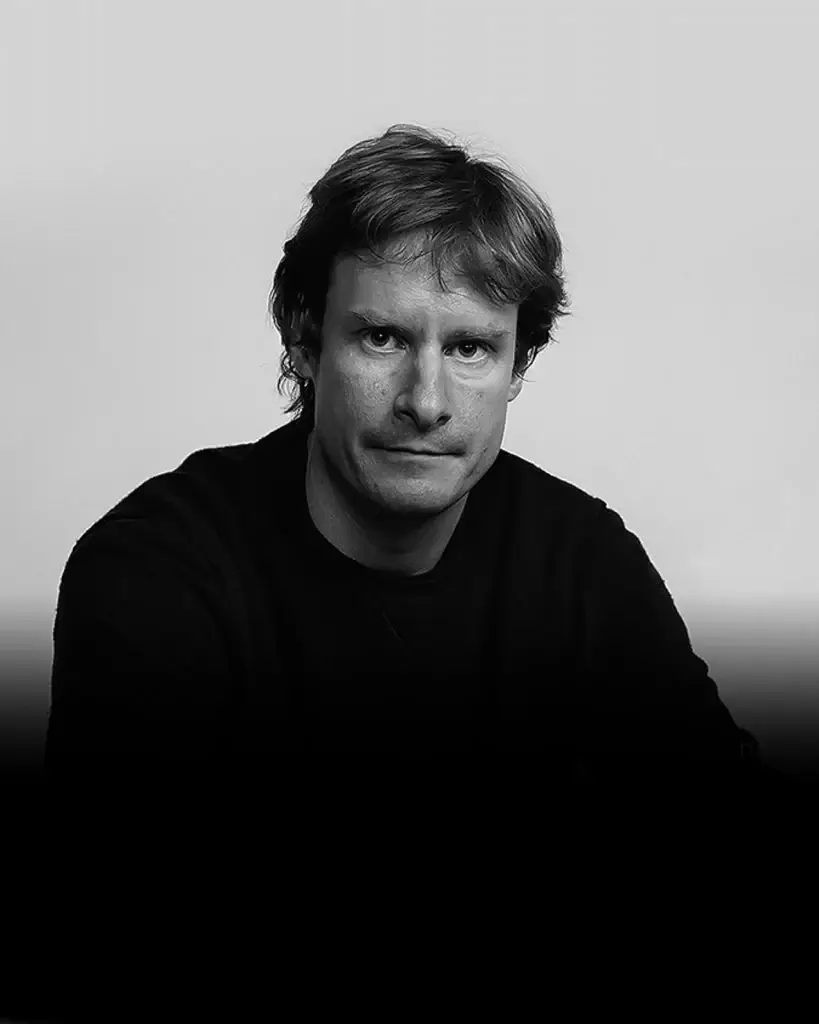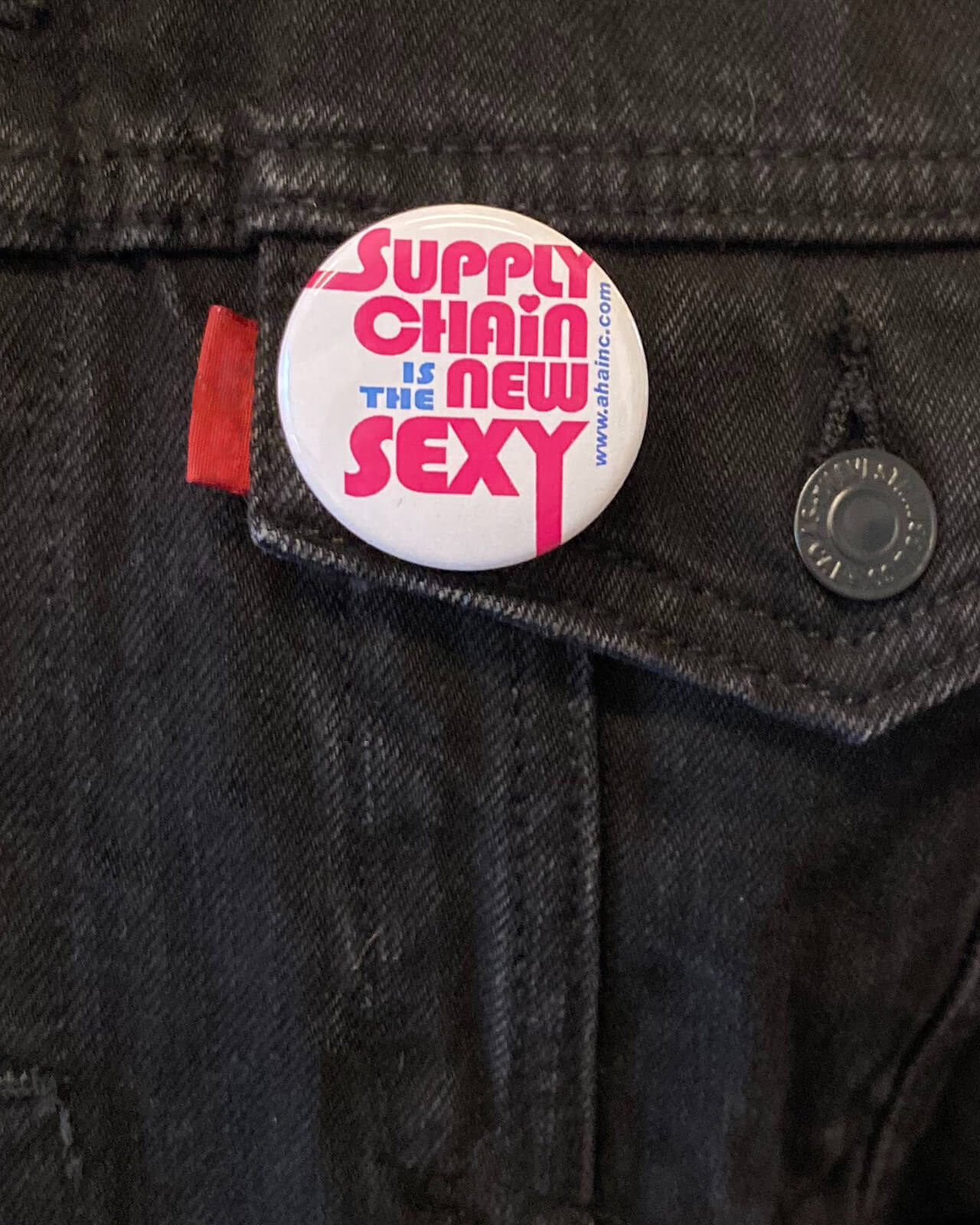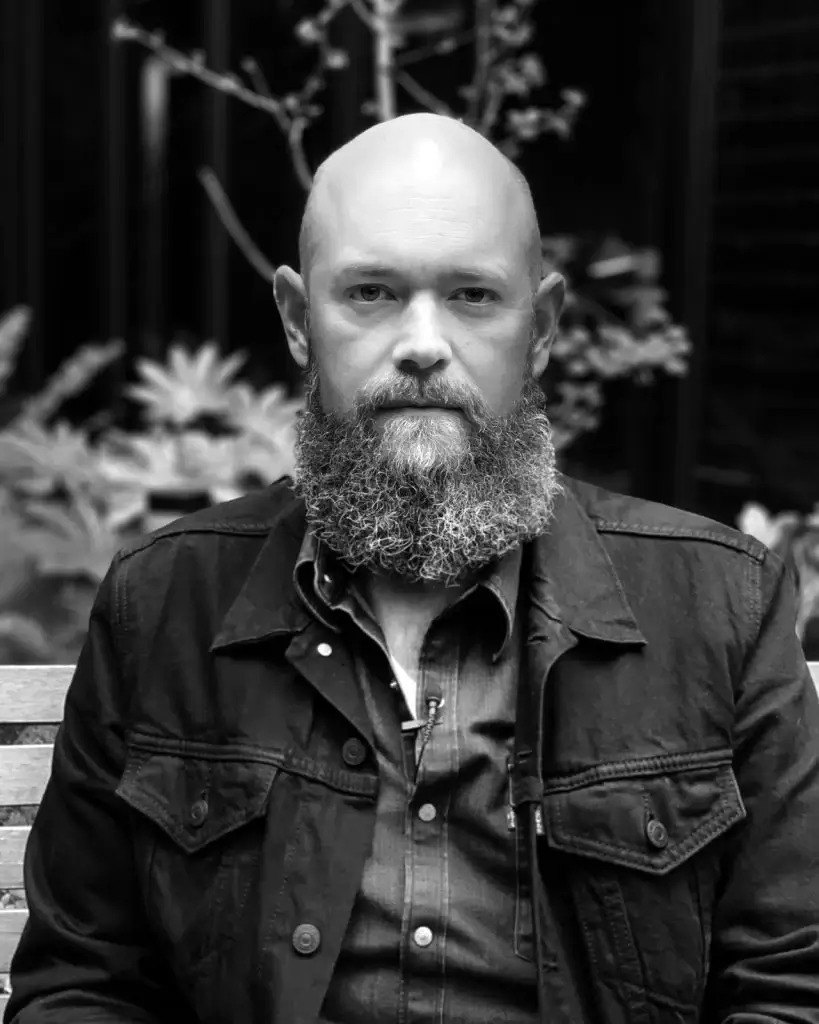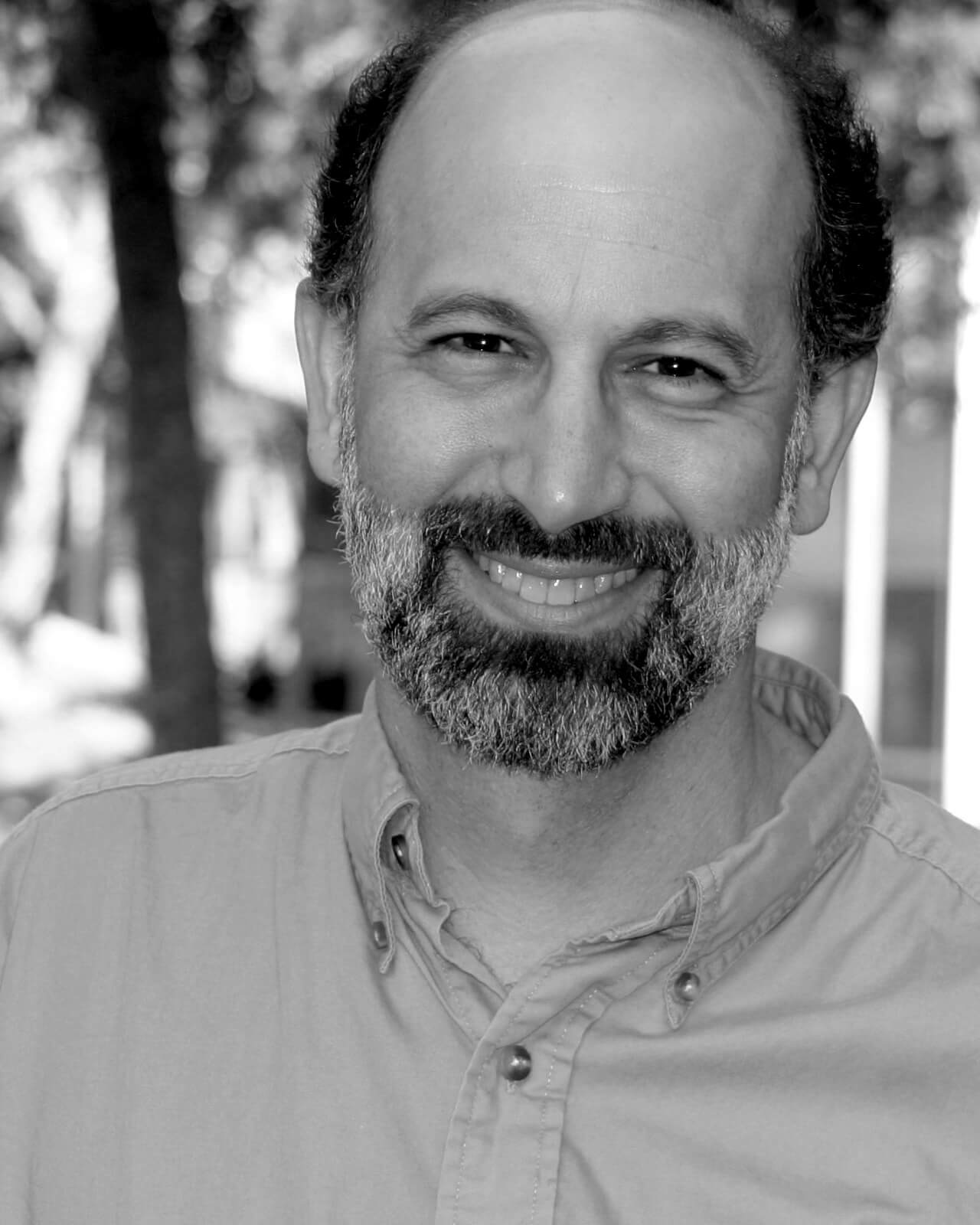Driving social change, pint by pint
Global Social Mission Oficer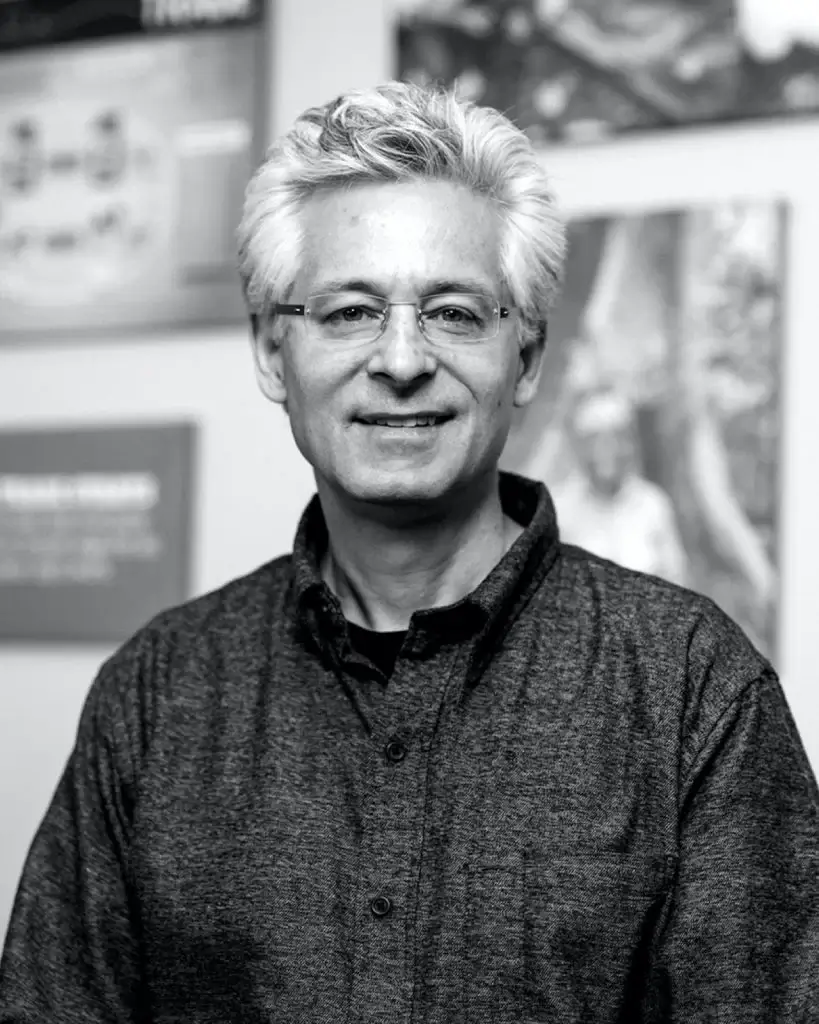
AHA talks with Dave Rapaport, global social mission officer at Ben & Jerry’s
With former titles like senior director of corporate consciousness at green products trailblazer Seventh Generation and vice president of Earth and community care at Aveda, Dave is no stranger to big-picture thinking. It’s what drew him to the public policy arena decades earlier, serving as the executive director of Vermont Public Interest Research Group and as senior staff with Greenpeace. But the thing that really interests Dave, now Ben & Jerry’s global social mission officer, is a more practical question: How can a company use mission and brand to spur positive social change? We talked with him about the difference between purpose and promotion, how to maintain social mission at scale (and through an acquisition) and his favorite ice cream flavor.
Your title of global social mission officer is interesting. Is that different from corporate responsibility or social impact?
Dave: It has a very specific meaning. Ben & Jerry’s operates with a three-part mission: our economic mission, our product mission and our social mission. All three combine to drive the business. The social mission derives from the values of our co-founders (Ben Cohen and Jerry Greenfield). Today, we define it as advancing human rights and dignity, social and economic justice, and environmental protection and restoration.
We advance our social mission in two different ways. The first is through the direct impact we have on the world though our operations. These are the traditional sustainability functions that you might find in other companies. For example, we have a very robust values-led sourcing program, the most significant part of which is in dairy, our main ingredient. Our work to advance racial equity within the company also falls on that direct-impact side. On the other side of the coin is the way we advance our values within society through fan-facing activism. While we try to influence the business community, most of our efforts center on amplifying the work of activists by partnering with NGOs and using the tools that we have as a business to advance their campaigns.
For the past half-dozen years, we’ve been working extensively on racial equity issues in the U.S., and that’s been primarily focused on criminal justice reform. In Europe, our primary focus is on refugee and asylum rights. And in some parts of the world, like Australia, it’s on climate. We’ve worked on LGBTQ issues around the globe and on a range of other things that fall within that framework.
In your career, you’ve been a senior director of corporate consciousness at one company and vice president of Earth and community care at another. Companies that are serious tend to create their own language and titles around purpose, rather than default to standard jargon. Why is that?
Dave: Because the companies that are serious are doing this for internal reasons. They’re still connected to what the founders wanted to do and be in the world. They’ve found ways to convey their values to everybody who joins the company. As a result, we all bring our own sense of what the company’s values mean to us. And it’s a living, breathing thing, much the way culture is. Everybody at Ben & Jerry’s can feel that their work is an extension of their personal values. Here, they can express and advance those things that are important to them.
How is what you do at Ben & Jerry’s different from cause-related marketing?
Dave: It’s the opposite. With cause marketing, you start with your audience. You’re trying to figure out what your target audience values and how you can align yourself with that. We start with what we value, and then we seek to connect with fans that share those values. Our goal is to activate our fans to amplify the issue, not to amplify our brand. Ironically, we’ve found that doing it this way has real business benefits. It has helped build our brand, but we know that the minute we try to do it for that purpose, it loses its magic.
Our goal is to activate our fans to amplify the issue, not to amplify our brand. Ironically, we’ve found that doing it this way has real business benefits.
So social mission isn’t in service to the brand; the brand is actually in service to social mission. How do you square that with your colleagues in marketing?
Dave: First off, we’re an activist organization, so everybody is here because they want to further the social mission. We all know when we sit down together to discuss an issue that we’re not going to do anything as a business that conflicts with the social mission. That said, we do celebrate the simple stuff—the euphoria of eating ice cream and the fun and creativity of the different flavors. Both things are happening, and sometimes they come together, as with our Justice ReMix’d flavor that supports an action campaign dedicated to criminal justice reform.
How do you discern between brands that are merely virtue signaling and the ones that are for real?
Dave: I look at two things: Do you have staying power, and are you partnering with people who know more than you? If you’re really after making true change, then you’re in it for the long haul and it’s not a one-off thing. And if you’re committing to actually see the change through, then you have to work closely with people whose life’s work is to make that change happen. We’re an ice cream company. We don’t claim to know how to run a campaign for a particular social issue. What we try to do is understand the landscape to find out who really does know. Who’s aligned with our values, and who do we trust to really guide us and tell us a role we can play in that effort? Then we commit to a long-term relationship and hope to be changed by it.
Give us an example.
Dave: We’ve collaborated with ACLU on many things, but the biggest has been working with Jeffrey Robinson on his Who We Are project, which reveals the gap between the values we’ve been taught we hold as Americans and the continuing reality of racism and injustice for Black Americans. Jeffrey came to speak to the company and then spoke to our franchisees at their annual gathering. It was a really important part of our journey, learning about things most of us had never been taught and doing some deep work that helped us to better understand what becoming antiracist is all about. We sponsored turning Jeffrey’s project into a podcast and are helping as he turns it into a video production. Another example is our work with the Advancement Project, our partner on the Justice ReMix’d flavor. Through that partnership we’ve been supporting reforms that invest in people instead of prisons, including a campaign in St. Louis to close the Workhouse jail and in Miami to shift funding from cops in schools to mental health services.
A lot of observers thought Ben & Jerry’s social mission would be diluted by the merger with Unilever, but it seems to have only gotten stronger. Why?
Dave: I think many observers didn’t recognize that Unilever has genuinely been on their own journey from a values standpoint and that the acquisition was as much about that as it was about the brand and the assets. They wanted to learn how Ben & Jerry’s was running a values-driven business. Over the course of our relationship, I think that they’ve ultimately arrived at a set of values that are similar, if not complementary, to Ben & Jerry’s. They’ve got a real commitment to sustainability in both social and environmental dimensions, and they’ve proven that’s where their business success lies. At this point, it’s really a partnership. We’re not always completely aligned, but we understand each other.
Firm boundaries also support the relationship. As part of the acquisition agreement that Ben and Jerry negotiated with Unilever, we’ve always had an independent board of directors who have governance over our social mission and the integrity of the brand. So we’re able to act independently in a way that I’m not frankly aware of any other acquisition being able to do. There’ve been a number of times where we’ve taken public positions that were directly opposing positions of Unilever. Having that kind of independence allowed us to preserve our integrity and also proved to them that taking stands could actually be good for business. So we have a right to do that, and we’ve exercised it. But broadly speaking, we feel very aligned with and supported by Unilever.
The idea of brands taking stands on social issues became a thing during the Trump era. Do you think it’s here to stay? What’s the future of brands in this time of polarization?
Dave: Polarization is ultimately a discussion about values, so I think values are going to remain important. Customer relationship is going to remain important. Something that Ben Cohen said rings true even more today, which is that the closest relationship you can have with your consumer is over shared values. For that to happen, you have to state your values. You’re not going to have close relationships within the superficial reality that most brands put out there. Those brands will become increasingly invisible in a polarized world. I don’t think success means that everybody has to love you. As we’re seeing both for good and for ill in the political world, success comes from having people who are passionate about you.
Something that Ben Cohen said rings true even more today, which is that the closest relationship you can have with your consumer is over shared values.
Do you see brands having to declare a side in order to stay relevant? Can brands still be unifiers in the middle? Is that even doable anymore?
Dave: I don’t think it’s about declaring a side so much as expressing your values and working for them in the world. Calls for unity can seem superficial or self-serving if they’re seen as papering over the status quo of oppressor-oppressed relationships. Certainly we all yearn for a positive future in which we don’t have such divisiveness. But I think there’s a significant and growing population that understands you don’t get there just by doing Pepsi ads.
We now see that we can’t take anything for granted of being there without continuing work and renewal. I hope that we continue to see a growing recognition of the responsibility we all have for establishing and enforcing the norms of justice and decency that our democracy depends on.
We can’t let you go before getting some true insider scoop. What’s the best Ben & Jerry’s flavor?
Dave: New York Super Fudge Chunk, of course. Chocolate ice cream with white and dark fudge chunks, pecans, walnuts and fudge-covered almonds. And it’s gluten-free. Need I say more?





